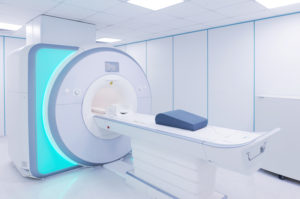JPML Declines to Centralize Gadolinium MRI Contrast Lawsuits
 Multiple plaintiffs who have filed gadolinium deposition disease lawsuits had filed a motion with the U.S. Judicial Panel on Multidistrict Litigation (JPML) to centralize the federal lawsuits in a multidistrict litigation (MDL). That motion was originally filed in July, with the plaintiffs’ counsel arguing for consolidation in the Northern District of California. But on October 10, 2018, the JPML issued an order denying the transfer.
Multiple plaintiffs who have filed gadolinium deposition disease lawsuits had filed a motion with the U.S. Judicial Panel on Multidistrict Litigation (JPML) to centralize the federal lawsuits in a multidistrict litigation (MDL). That motion was originally filed in July, with the plaintiffs’ counsel arguing for consolidation in the Northern District of California. But on October 10, 2018, the JPML issued an order denying the transfer.
MDLs are formed by the JPML for the purpose of coordinating pretrial proceedings among multiple cases filed against common defendants that share similar allegations and statements of fact. MDLs are intended to eliminate the possibility of duplicative discovery and contradictory rulings across multiple districts. They also reduce resources expended on behalf of all involved parties.
Reasons for declining a gadolinium disease MDL
Late in September, the JPML heard oral arguments regarding the potential formation of a gadolinium MDL. Although there are a growing number of plaintiffs filing these types of product liability lawsuits, the JPML found that there weren’t enough currently to justify the centralization of the lawsuits. The JPML further found that “The injuries alleged in each case appear to be highly plaintiff-specific, and the actions involve GBCAs manufactured by one or more of four different defendant groups, involving different formulations.” Additionally, the JPML noted that the majority of cases were represented by a single law firm. This fact suggested that an informal case coordination may be as effective as case centralization.
Effect of the JPML’s decision
When an MDL is formed, the presiding judge selects a handful of bellwether cases. These cases are tried individually, and the results aren’t binding on the other cases. It’s generally expected that the bellwether trials are followed by fruitful settlement talks, which would eliminate the need to remand the remaining cases back to their home districts for trial. However, as the gadolinium deposition disease lawsuits will proceed without centralization, they will go through discovery and the settlement negotiation or trial process in their home districts.
What is gadolinium?
Gadolinium contrast media is injected into some patients who undergo magnetic resonance imaging (MRI) scans. The purpose is to enhance the clarity of the medical images in order to improve the diagnostic accuracy of the scan. In particular, gadolinium is known to improve the imaging of tumors, inflammation, blood vessels, and the blood supply to certain organs.
On the atomic level, each gadolinium ion forms a chemical bond with a carrier molecule, which is a chelating agent. Gadolinium is a heavy metal that can cause toxicity in the body. The chelating agent is supposed to work by preventing the toxicity of gadolinium while still enabling the proper contrast of images. Different chelating molecules are used by different brands of gadolinium contrast media.
About gadolinium deposition disease injuries
Although manufacturers of gadolinium-based contrast agents (GBCA) have long claimed that the product passes out of the body before the gadolinium can cause harm, increasing evidence suggests otherwise. Recently, the Canadian Association of Radiologists warned of potential risks and recommended GBCAs should be used only when absolutely necessary, and that repeat injections ought to be avoided whenever possible.
The plaintiffs claim that they have experienced a wide range of health complications from gadolinium toxicity, including cognitive impairment, persistent headaches, skin thickening, and bone and joint pain. One notable lawsuit, which was filed in November 2017 by actor Chuck Norris and his wife, Gena, claims that Gena Norris received gadolinium contrast media and was left with fatigue, weakness, chronic episodes of pain, and burning sensations.
Additional resources:
- U.S. Judicial Panel on Multidistrict Litigation, Order Denying Transfer, http://www.jpml.uscourts.gov/sites/jpml/files/MDL-2868-Denied-Transfer-09-18.pdf
- Health Day, FDA Issues Tougher Warning on MRI Dye Tied to Brain Effects, https://consumer.healthday.com/health-technology-information-18/mri-scan-news-455/fda-issues-tougher-warning-on-mri-dye-tied-to-brain-effects-729530.html

